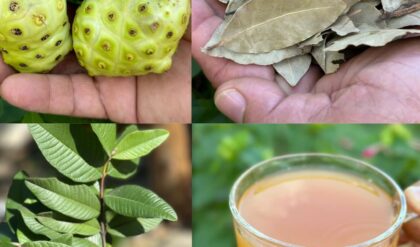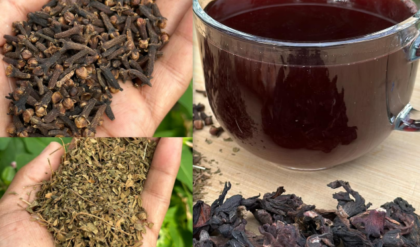The mousetail plant (Stachytarpheta jamaicensis), often regarded as a wild herb, has gained attention for its potential benefits in treating cardiovascular conditions like heart disease and heart valve regurgitation. But how much of this is fact, and how much is folklore? Let’s delve into the plant’s medicinal properties, its uses, and its limitations to understand its true value.

An Introduction to the Mousetail Plant and Its Properties
The mousetail plant, also known as verbena weed, sea fairy, or fake horsetail, is a perennial herb from the Verbenae family. It grows abundantly in rural areas, rice fields, and roadsides, making it easily accessible.
This plant is easily identifiable by its distinct features. The stem is slender and four-sided, resembling a mouse’s tail. The leaves are oval-shaped with serrated edges, and its small purple-blue flowers bloom in eye-catching clusters. The plant has a bitter, slightly spicy taste, adding to its uniqueness.
Mousetail Plant and Cardiovascular Health

The mousetail plant is often associated with cardiovascular benefits. While traditional remedies and scientific studies both hint at its potential, understanding its exact effects is key.
Folklore and Traditional Use
In traditional medicine, the mousetail plant is said to improve heart valve regurgitation. Folklore advises consuming raw leaves daily, with men taking seven leaves and women nine. Regular consumption is believed to alleviate symptoms over time.
Apart from heart valve regurgitation, the plant is also considered beneficial for other cardiovascular conditions, although these claims largely stem from anecdotal evidence.
Scientific Research on Its Benefits
Scientific studies and oriental medicine practitioners have validated some of the plant’s cardiovascular effects. The plant demonstrates several potential health benefits.
Fresh stems and leaves contain ethanol, which has vasodilatory and antispasmodic properties. These effects improve blood flow to the heart, reducing symptoms such as chest pain, shortness of breath, and fatigue.
Research by F. Amaechina and J.E. Atama highlights that essential oils from mousetail leaves can effectively lower blood pressure. They also stabilize blood sugar levels, which benefits people with diabetes and cardiovascular diseases.
The plant is rich in phytochemicals like saponins, tannins, and flavonoids, known for their anti-inflammatory and anti-infective properties. These compounds help reduce chronic inflammation and protect the heart valves from further damage caused by infections.
Extracts from the plant also support liver detoxification and help lower liver enzyme levels, making it beneficial for individuals on long-term Western medications prone to liver toxicity.
How to Use the Mousetail Plant for Heart Disease

Proper usage is essential to maximize the benefits of the mousetail plant. There are two commonly recommended methods:
To consume fresh leaves, wash them thoroughly, ideally with salt water to remove impurities. Men should chew and swallow seven leaves in the morning, while women should consume nine leaves. This simple method has been popularized in traditional practices.
For a tea-like preparation, pick and sun-dry the plant’s leaves and shoots. Once dried, store them in a cool, dry place. To use, steep 30 grams of the dried plant in boiling water and drink as tea.
Precautions When Using the Mousetail Plant
Despite its potential, the mousetail plant should be used with caution. The cardiovascular benefits observed in studies have primarily been on animals, not humans. It should not replace prescribed Western medications but can serve as a complementary therapy under medical supervision.
Pregnant and breastfeeding women, infants, and people with low blood pressure should avoid using this plant. If side effects such as nausea, rashes, or redness occur, discontinue use immediately and consult a doctor. Always seek medical advice before incorporating the plant into any treatment plan.
Alternative Herbal Solutions for Heart Health
In addition to the mousetail plant, other herbs like Danshen and Huangtang are well-researched and widely used for cardiovascular health. These herbs are often included in dietary supplements like Ich Tam Khang, which has been clinically proven to:
- Alleviate symptoms such as chest pain, fatigue, and shortness of breath.
- Reduce pressure on heart valves, preventing severe regurgitation.
- Lower the risk of complications such as heart failure and blood clots.
Conclusion
The mousetail plant is a fascinating herb with promising benefits for heart health, backed by both traditional practices and some scientific evidence. While it should not be used as a primary treatment, it can complement a doctor-recommended regimen when used correctly. For those seeking more validated options, herbal supplements containing Danshen and Huangtang provide a safer and more reliable alternative. Always prioritize informed and cautious use to ensure the best outcomes for your heart health.





